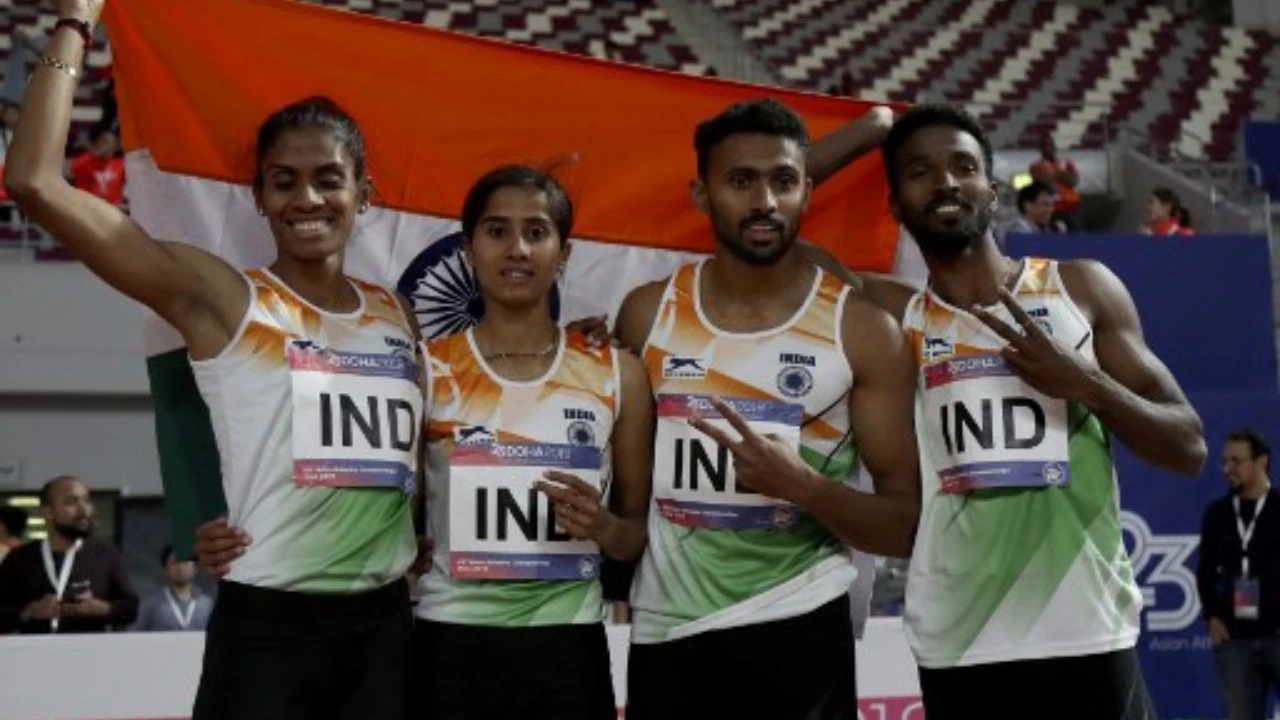When Gary Hall decided to step down from his position at Great Britain Taekwondo as trainer and performance director, it wasn’t to take a break — it was to pursue a new career.
One that touches the lives of a billion people, holds a massive amount of untapped sporting talent, and has a goal to shake up the Olympic medal table.
Now, as the High Performance Director of the Inspire Institute of Sport (IIS) in Bellary, Hall is convinced India is on the verge of making a huge break-through — and not by default, but through strategy, science, and systems.
“I had reach a point in my career where I’d done most of what I’d set out to do,” says Hall in an exclusive interview to WION. “After Paris 2024, I sat back and thought: Do I take another four years with Great Britain, or do I try something new and significant?” India provided the answer.”
Supported by JSW Sports and Parth Jindal’s vision, IIS has been spearheading private-sector investment in Olympic sport in India. Its mission is singular: Create world-class athletes, consistently and sustainably. And Hall’s role? To lead the charge.
Building the Indian Olympic engine
India’s Olympic experience has been an epic of disparate brilliance and not continuous success. Hall, however, doesn’t care about the past — he’s concerned with the future.
“India has the potential. It has the enthusiasm. But Olympic sport now is not just a matter of talent, but preparation,” he says. “You are competing on science, medicine, coaching, facilities, psychology — it’s a whole ecosystem.”
“At IIS, much of that system is in place already. World-class facilities for gyms, nutrition laboratories, recovery rooms, and dormitory accommodations set the stage for serious elite preparation. But Hall was quick to point out: it’s not sufficient to create a building. You must construct a system,” he added.
Hall goes on to explain the process. “The first step is talent identification. In a country this big, there is ample talent out there — it’s about locating it. Towards that goal, IIS is rolling out contemporary, digitally led outreach tactics, such as animated films on social media to describe routes to entry for emerging athletes.”
Then comes elite coaching. Hall believes Indian coaching must embrace a mindset shift — from cautious to courageous. ‘We need coaches who ask, ‘What is possible?’ not ‘What’s been done before?”
Crucial to the next step is sports science and medicine, an area where IIS already excels. ‘The setup here is as good as I’ve seen anywhere. It allows for data-driven, athlete-specific performance planning.’
But the last, usually hidden piece is operations and logistics — how players get around, where they play, how competing schedules are coordinated. “Being well-organised on and off the field makes a huge difference in medal margins.”
Another transformative component Hall is bringing in is performance psychology. ‘We’re in discussions with one of the world’s leading sports psych firms,’ he reveals. ‘They’ve worked with Olympians, Premier League stars — and they’ll be helping our athletes understand not just how to perform, but how to prepare mentally for high-stakes moments.’
“This will involve both performance-oriented psych support and lifestyle guidance, particularly essential for young athletes making the step up into elite sport,” he explains further.
A new mindset
Hall is aware of the structural and cultural challenges. “A lot of athletes here still view sport as a way to a government job — in the railways, the Army. But we want to demonstrate that sport can be a career in itself for the long term,” he said.
The success of athletes such as Neeraj Chopra, PV Sindhu, and Lovlina Borgohain is already the proof that the model is working. Hall desires to use their stories to trigger a movement — to make achievement repeatable rather than exceptional.
“We want to inspire the next generation not only with dreams, but with a roadmap,” he assets. That roadmap, built on IIS’s growing reach and alliances, will feature strategic initiatives such as women-specific talent identification, sustainable grassroots plans across the country, and enlarged educational content.”
For Hall, the end objective is clear: Not only medals at Los Angeles 2028 and Brisbane 2032 — but an entire reshaping of India’s Olympic potential.
“When we do well at the top, it sends out ripples. That’s how you shape curriculum, culture, and confidence. And if we get this right, there’s no reason why India can’t become one of the leading countries in the sporting world,” he signed off.
